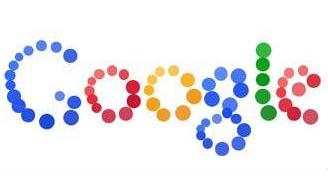

In modern movies, “Google it!” has often become a standard line. But in Sweden, Google has shown that it’s not too happy about becoming a verb unless it’s one that specifically addresses only Google’s search engine and not those of competitors.
In a 26 March story, the Swedish SverigesRadio website reported that the Swedish Language Council, a government agency, had been considering the inclusion of a new list of words for the nation’s language.
One of the words being considered for inclusion in the list was “ogooglebar”, which translates to “ungoogleable”, the story stated.
After objections and requests from Google and its team of lawyers, ogooglebar was apparently dropped from consideration on the new word list, SverigesRadio reported.
“The word ‘ogooglebar’ was described in the new order list as a term for something ‘that cannot be found on the web using a search engine,'” according to the report.
The problem for Google, the story continued, was that Google wanted the definition to be clear that it only would refer to web searches made using Google and not with any other search engine.
The word “ogooglebar” was eventually dropped from the word list because the back and forth email discussions with Google’s lawyers had become too large a drain on the agency’s resources, Ann Cederberg, director of the Swedish Language Council, told SverigesRadio.
“We do this after a long email exchange with Google’s lawyers, who have tried to influence the way we define the word,” Cederberg said.
Google disagreed with the council’s interpretation of the word as it was used by citizens, she said.
Of course, not including ogooglebar in the latest Swedish word list doesn’t mean that it will disappear. Anyone can certainly use the term, whether or not Google likes or endorses it.
Contacted by eWEEK via email, a Google spokesperson said that the company is very sensitive about how its name is used.
“While Google, like many businesses, takes routine steps to protect our trademark, we are pleased that users connect the Google name with great search results,” the spokesperson said.
Google maintained that it didn’t ask in its emails to the Swedish Language Council that the term be removed, but that the edits be made to make the proposed term specific only to Google. The agency then voluntarily agreed to remove the word, according to Google.
The council proposal for the use of ogooglebar was made in December 2012 as part of its annual list of recommended new Swedish words, according to a report from Swedish media site TheLocal. The agency refused to bow to Google’s demands, the story said.
“Instead, we’re removing the word today and stating our displeasure with Google’s attempt to control the language,” Cederberg told TheLocal. “If we want to have ogooglebar in the language, then we’ll use the word and it’s our use that gives it meaning – not a multinational company exerting pressure,” she said. “Speech must be free!”
The Language Council chose not to compromise with Google’s requests, Cederberg told TheLocal. “It would go against our principles, and the principles of language. Google has forgotten one thing: Language development doesn’t care about brand protection.”
Are you a Google expert? Take our quiz!
Originally published on eWeek.
Pebble creator launches two new PebbleOS-based smartwatches with 30-day battery life, e-ink screens after OS…
Amazon loses appeal in Luxembourg's administrative court over 746m euro GDPR fine related to use…
Nvidia, xAI to participate in project backed by BlackRock, Microsoft to invest $100bn in AI…
Google agrees to pay $28m to settle claims it offered higher pay and more opportunities…
Chinese social media giant Tencent triples capital expenditure on AI data centres and other areas…
EU gives Apple demands for third-party developer access to iOS features and greater responsiveness in…